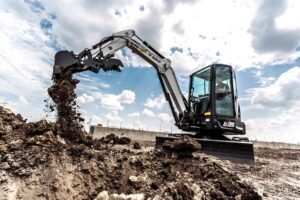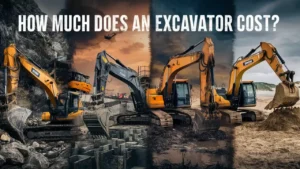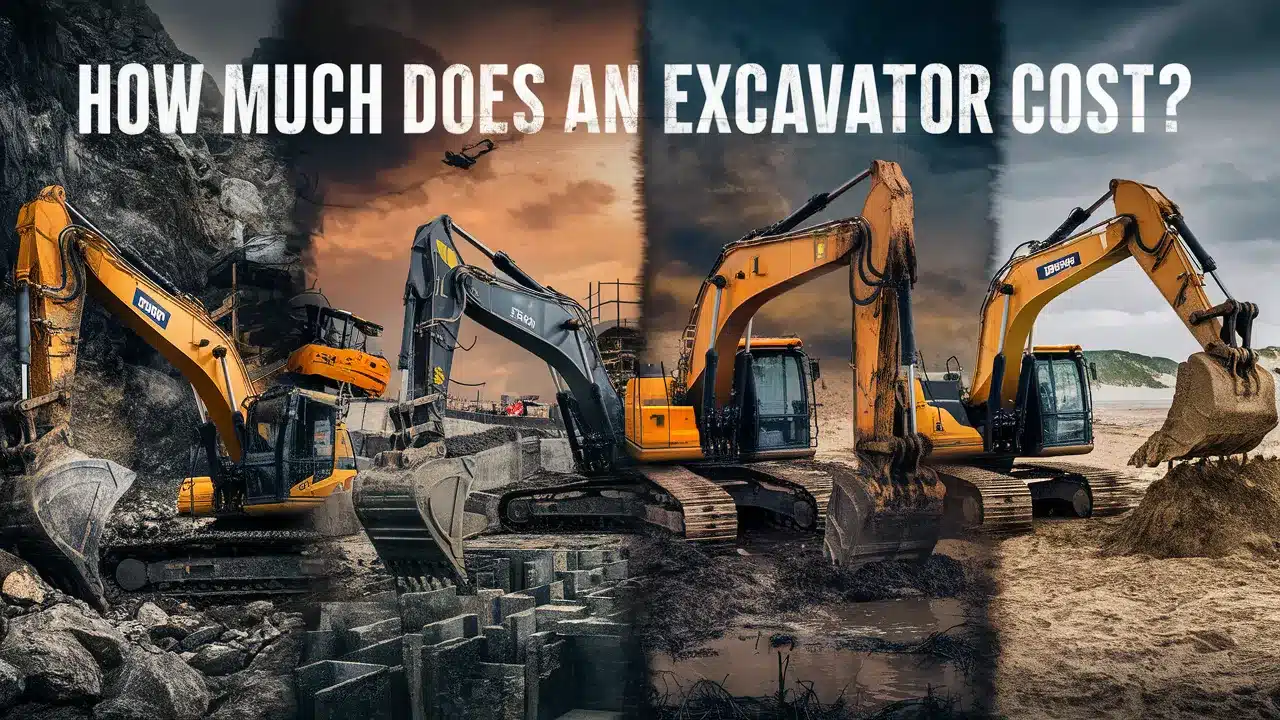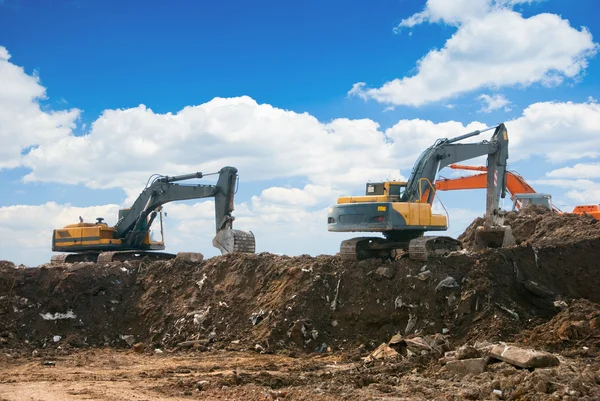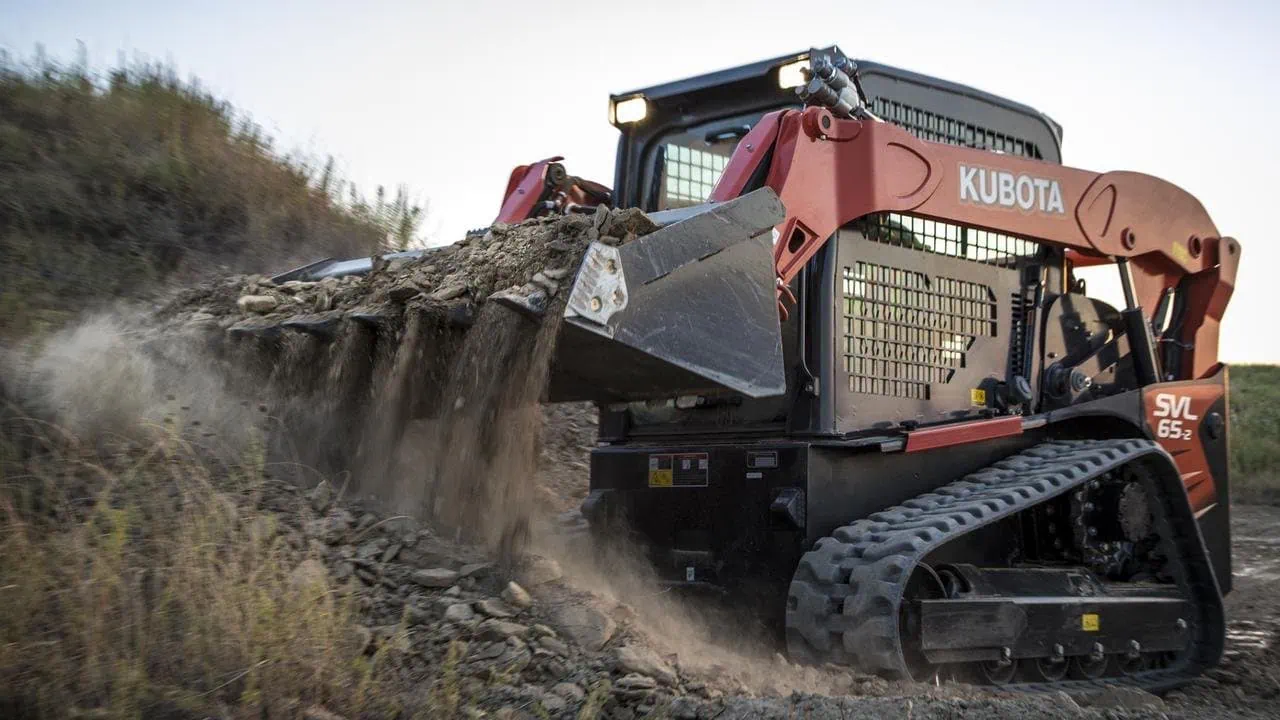Buying a used Hyundai excavator is a significant investment, and you need to be sure it’s going to perform. Unfortunately, for many buyers, there are a lot of unknowns or the quality isn’t there, or the seller isn’t responsive. This guide will give you the key steps you need to make an educated decision when buying a used Hyundai excavator.
When purchasing a used Hyundai excavator, it’s important to focus on quality, price, machine history, and certification. You need to select a reliable supplier, perform thorough quality checks, and understand the machine’s usage history. This guide will help you avoid common pitfalls and ensure a smooth transaction.
Next, let’s dive into the steps you can take to ensure you’re buying the right used Hyundai excavator for you.
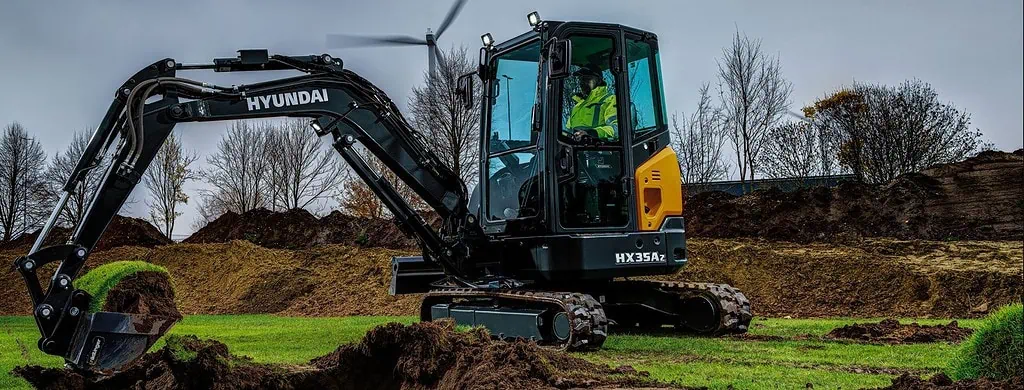
Оглавление
ПереключатьWhy Choose a Used Hyundai Excavator?
Hyundai excavators are known for their reliability, durability, and technology, making them a favorite for construction professionals worldwide. So, if someone is asking the question of whether to buy a new or used Hyundai excavator, there are several reasons why buying used is a good option.
Affordability
The most significant benefit of purchasing a used Hyundai excavator is the simple cost savings. A new Hyundai excavator could cost over $100,000. A used one might be one-third that price. If you don’t have the budget, but you need a great machine, buying used makes good sense. Because you save so much money upfront, you can either use that money to buy more machines or to invest in a variety of attachments to make a used machine more versatile.
Proven Performance
Hyundai makes great machines. They perform well. They build them strong. Even after lots of hours of use, a Hyundai machine can continue to deliver excellent results. It can effectively move dirt, lift, and dig. Many used Hyundai machines are still in good condition and were well taken care of with regular, routine maintenance.
Более низкая амортизация
New machines depreciate very quickly. As soon as you leave the dealer, the value of that machine drops. However, with a used Hyundai excavator, because a lot of the depreciation has already happened, you’re not going to lose as much money when you choose to sell. This is especially true if you continually turn your equipment, upgrade it, or switch models.
Wide Availability
Hyundai makes a lot of machines. The used market has loads of late- model Hyundai equipment for sale. Whether you’re in the market for a small, compact excavator or a large excavator on tracks, you have lots of choices with Hyundai. This wide availability continues to make being in the used Hyundai equipment market a great place to be. There are lots of machines for sale, and many of them are relatively new and in great condition. This provides you with a great balance of affordability and performance.
Environmental Impact
Buying used equipment also has environmental benefits. Manufacturing new equipment consumes resources. Every time you buy a new machine, a lot goes into producing it. When you buy a used Hyundai excavator, you’re not buying a new machine. Therefore, the need to produce a new machine decreases. When you buy used, you are being kinder to the planet by not consuming as many new resources.

What Factors Should You Consider When Buying a Used Hyundai Excavator?
The overall condition of the machine is the most important factor to consider when buying used equipment. Even though Hyundai machines are built to last, they can wear out with heavy use over time. Inspect the machine yourself or hire a qualified equipment inspector. Look for signs of excessive wear and tear like broken or worn hoses, rust in critical places, checks for cracks in welded areas, excessive play in any of the pivot points or bushings, and any unusual noises when the machine is running.
Machine Condition
The most essential thing when buying used equipment is the condition. Hyundai machines last a long time, but they can get worn out. Inspect the machine personally or hire someone. Look for any signs of wear and tear on the machine. Look for broken or excessively worn hoses, look for any rust areas that are critical, look for any cracks in any welded areas, look for excessive play in any of the pivot points or the bushings, and listen for any humming sounds or unusual noises coming from the machine when you have it running.
Age and Hours
One of the most significant indicators of remaining life on a machine is the number of hours it has operated. Most Hyundai excavators are expected to last between 8,000 and 12,000 hours before “major” repairs or overhauls are needed. Here’s the thing to keep in mind: some machines, even though they might have higher hours on them, they still have a significant amount of life left, especially if they were well-maintained. So all things being equal, less operating hours on a used machine is better than high operating hours, but don’t discount the higher hour machine if it was meticulously cared for by the previous owner.
Undercarriage and Wear Items
The undercarriage and wear items on a used Hyundai excavator should also be inspected. These areas often show the most wear and tear on a machine. Tracks, sprockets, and rollers should be carefully inspected, and if they are nearing the end of their useful life, replacement wear items should be part of the purchase negotiation. Other components to check include the teeth and cutting edge of the bucket, as well as the condition of any hydraulic hoses. All these components can be expensive to replace, so you’ll want to check their condition before deciding to purchase a used Hyundai excavator.
Price
Finally, an understanding of the market is crucial when deciding on the value of a used Hyundai excavator. Take the time to review current sales listings for similar machines, and compare the asking prices to the age and condition of the excavator you are considering. If the excavator is at the high end of the market price, be sure you understand why, and make sure it involves added value such as low hours, a warranty, or the inclusion of additional equipment.
If a machine is priced well below the market average, you may want to inspect it more thoroughly or ask for any service and maintenance records the seller can provide. Used Hyundai excavators can provide a sturdy workhorse for a fraction of the cost of a new model. However, the cost of a buying a used machine is substantial, and you must do your homework so you can buy a quality piece of equipment that will provide long service and reliability at a fair price.
Supplier Reputation Go to the source of your business needs and ask what they purchase and return for this purchase. No one knows neighborhoods like the postman, and no one knows the reputation of the local supplier better than the local contractors. Reputation is the key to a good supplier. If everything checks out, trust the folks who do the job every day.

How Do You Assess the Condition of a Used Hyundai Excavator?
In order to determine the condition of a used Hyundai excavator, you need to carefully look at the machine piece by piece. Start with the top of the machine and work to the bottom, moving from left to right systematically and methodically. Follow the list below to make sure you examine every component to see if it is good or not.
Engine Inspection:
Also, be sure to look at the condition of the hoses and belts connected to the engine. These can be indicators of the overall maintenance of the machine. If the hoses are cracked and the belts are worn, it’s likely that the excavator hasn’t been well cared for and may have other issues beyond just the engine.
Hydraulic Systems:
The hydraulic system is like the nervous system of the excavator. Look it over carefully. Check for hydraulic leaks in the hydraulic cylinders, hoses, and valves. Operate the hydraulic arms, boom, and bucket, feeling for any hesitancy or jerky movement. Sluggish or jerky movement can be a sign of a weak hydraulic pump or bad hydraulic seals, both expensive repairs.
Undercarriage
The undercarriage can be one of the most expensive items to have to replace on an excavator, so it is essential to look it over well. Look for wear or damage to tracks, sprockets, and rollers. The tracks should not have any deep gouges or cracks and should be evenly aligned. Additionally, check the track tension to make sure it is within the manufacturer’s recommended specifications.
Cab and Controls
Inside the cab, look over the condition of the seat, controls, and gauges. Make sure all the gauges and instruments are in working order. Sit in the operator’s seat to make sure it is comfortable and adjustable. Also, pay attention to the visibility from the cab. Are the windows free from cracks or damage that could cause impaired visibility for the operator?
Exterior and Frame
Look over the exterior and frame of the excavator. Check for any damage such as cracks, dents, or rust. Also, look the undercarriage and body frame over for any bending or stress that may indicate that the machine has been overworked.
Test Drive
If possible, take the excavator out for a test drive. This will give you a chance to see how it performs. See how well it operates under load. Also, check the stability and overall maneuverability of the machine. Finally, pay attention to any unusual noises or vibrations while operating the excavator.

What Documentation Should You Request Before Purchasing?
Before you buy a used Hyundai excavator, there are certain critical items you should have on it to make sure you’re not getting someone else’s problem. Or problems! Here’s what you need to look for and ask for:
Записи о техническом обслуживании
You need to see these. If there is a complete maintenance record, that’s terrific. It will show you how often the machine has been serviced and what work has been done to it. A good maintenance record means the previous owner took care of it and you’ve got a good chance the machine will take care of you.
Inspection Certificates
A lot of suppliers these days offer inspection certificates for used Hyundai excavators. An inspection certificate is a statement that the machine has been checked out and it meets certain standards. The inspection must cover all the critical areas such as the engine, hydraulic systems, and safety features. Never buy a used Hyundai excavator without seeing the inspection certificate.
Ownership History
Proof of ownership is also a big deal when buying a used excavator. Make sure the seller can provide you some type of documentation that they own the machine, and you aren’t buying a stolen Hyundai. The way to confirm this is to get the serial number off the machine and do a little checking
Warranty Information
Sometimes used Hyundai excavators are still covered under the manufacturer’s warranty. Obviously, this would give you an added level of comfort when buying a used machine. Even if it isn’t covered under the factory warranty, many suppliers will offer some type of limited warranty or service agreement. Make sure you ask about this, as well as what type of peace of mind it can provide you.
Repair History
In addition to a maintenance record, ask for a repair history. This document will show you any major repairs or overhauls the excavator has had. More than just a simple service record, a repair history will show you any major work that’s been done to the machine. (Idea here is that what major work has been done to this machine.)
How to Evaluate the Excavator’s Performance and History?
Evaluating the performance and history of a used Hyundai excavator is critical to ensuring that the machine will meet your needs and perform reliably. Here are several key factors to consider:
Usage Hours
How many hours the excavator has been used is a huge factor in thinking about will this Used Hyundai excavator be good for me or not. Properly cared for, most Hyundai excavators are designed to go for tens of thousands of hours. So, don’t freak out if the machine has 7,000-8,000 hours on it. If it’s been taken care of, it may still be a good investment for you.
Test Results
A good dealer will let you go out and “test drive” an excavator before you buy it. During the test, see how well the machine digs. Check to see how the hydraulics perform. Test the digging power, as well as the breakout power. Also, see how fast the machine is. And, of course, look for anything unusual like slow hydraulics, the machine stalling with a load, etc.
Historical Performance Reports
Some suppliers these days provide historical performance reports. These reports will show you the machine’s productivity, operating costs, and how efficient the machine has been in the past. If available, these reports can give you a good idea of whether the machine has been a productive, money-making machine or a high-maintenance headache.

What Are the Risks of Buying a Used Hyundai Excavator, and How Can You Mitigate Them?
While buying a used Hyundai excavator can be a great way to save money, it comes with certain risks. By following a few simple steps, you can mitigate these risks and ensure that your purchase is a sound investment.
Risk of Hidden Damage
Even with a good inspection, some things might not be evident. To protect yourself, you need to buy from a reputable supplier with warranties or guarantees. You also might consider hiring an independent third-party inspector to go over the machine and make sure of its condition.
Risk of Incomplete Documentation
The machine must have documentation. No records will come back around to bite you. If the machine goes down, or you need to fix something, you need to know what’s been done in the past—so make sure you get the records.
Risk of Price Deception
Sometimes a used Hyundai excavator may seem like a steal of a deal, but hidden costs could make it no deal at all. Make sure you know the total delivered cost to your place, any potential needed repairs, and all the taxes that go along with it. Always get a written estimate before you cut the check for it.
How to Choose the Right Model of Used Hyundai Excavator for Your Needs?
When you’re in the market to buy a used Hyundai excavator, you need to pick the machine that can do the job you need it to do. Hyundai offers several different models with different capabilities, so make sure you know what you need the machine to do before you buy. Here are a few things to think about when making your choice:
Job Site and Conditions
Are you going to work inside buildings or in a tight space? You might need a compact or mini excavator. Hyundai builds the HX Series and the R55, among others to work in tight spaces. Are you going to be working on a big, open job with big digging and lifting? Many times, a bigger machine like the HX520L or R225L will get more work done faster for you.
Look at the specs
Different Hyundai excavators have different bucket sizes, stick lengths, and lift capacities. Make sure that you look at these specifications versus what you need to do and buy the right machine. Generally, bigger machines have more lift and digging power. Smaller machines use less fuel and are more maneuverable. Way oversimplified, but a good rule of thumb in most cases.
Hyundai fuel efficient
Hyundai engines are known for their fuel efficiency. If you need a machine for a long-term project or run one for a lot of hours, a fuel-efficient machine will lower your operational costs. So when you compare machines to buy, take note of the fuel consumption per hour. Especially if you are going to run the machine a lot of hours per day.

Заключение
In summary, buying a used Hyundai excavator is a good move for many businesses to save on capital costs while still getting heavy-duty construction equipment. By following this guide of thinking about the machine’s condition, specs, and who you’re buying it from, you can do a pretty good job making sure you’re not buying someone else’s problem.
And when you do buy the machine and own it, maintain it properly. Don’t ask the machine to do something it can’t do. If you’ll do these things, I think you’ll have a good piece of equipment that’ll work hard for you for a long time without costing you an arm and a leg in repair bills.For more information or professional advice, feel free to contact us.

